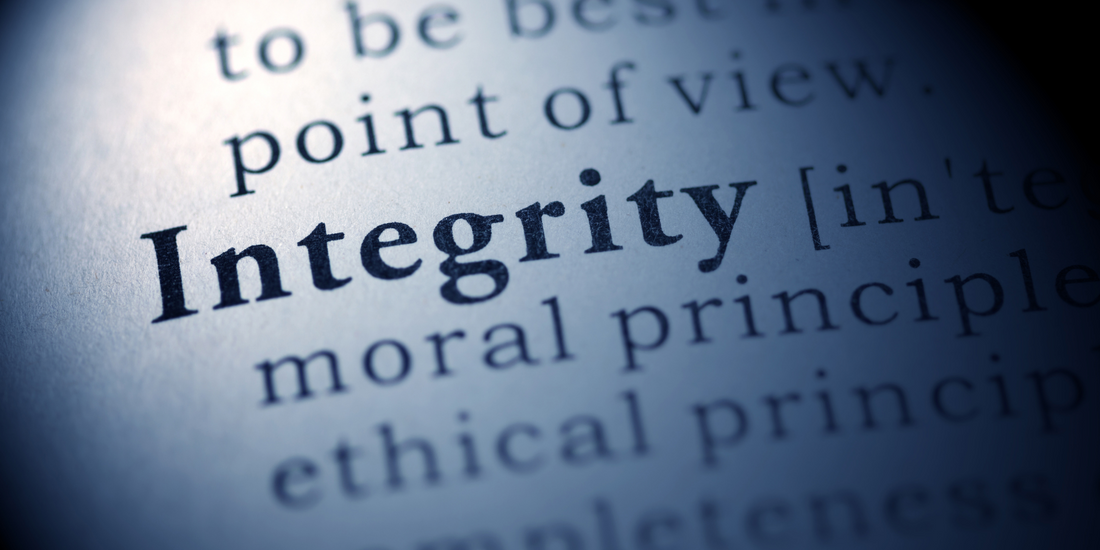
Integrity and Healing: Reclaiming Your Truth After Trauma
Share
Integrity: The Hardest Truth We Tell Ourselves
Integrity. It’s a word we associate with honesty, morality, and standing firm in what’s right. But what happens when your understanding of "right" has been shaped by trauma? What happens when the very foundation of your integrity feels unstable, built on the fractured pieces of a childhood marked by pain, secrecy, and survival?
For me, integrity wasn’t something I thought much about until I began confronting my past. It wasn’t until I started writing my story that I realized how deeply childhood trauma had shaped the way I viewed honesty—especially honesty with myself.
The Struggle for Self-Honesty
Childhood trauma often forces you to lie—not necessarily to others, but to yourself. To survive, you learn to bury the truth, to convince yourself that the hurt wasn’t so bad or that you deserved it. These lies become a protective layer, but they also create distance between you and your own integrity. How can you live honestly if you’re not honest with yourself?
For me, self-honesty felt dangerous. A part of me was afraid that if I looked too closely at my pain, it would consume me. But I’ve come to realize that integrity begins with self-truth. You can’t live in alignment with your values if you’re constantly running from your past.
The Pressure to Keep Secrets
Growing up, the unspoken rule in my family was clear: what happens behind closed doors stays there. Whether it was to protect an image, avoid confrontation, or deny the truth altogether, secrecy was a way of life. And as a child, I followed that rule. I thought it was loyalty, but now I know it was silence—and silence is not the same as integrity.
Secrets erode your sense of self. They teach you that your truth is dangerous, that speaking up will bring harm or rejection. For years, I didn’t just hide my family’s secrets; I buried my own, even from myself. Breaking free from that silence has been one of the hardest and most liberating acts of integrity in my life.
The Fear of Vulnerability
Trauma makes you a fortress. Vulnerability feels like a weakness, and honesty feels like an open door inviting judgment or harm. For years, I avoided hard conversations with myself and others because I was scared of what they might reveal.
But integrity requires vulnerability. It’s not just about being honest with others—it’s about being willing to admit when you’re scared, when you’re wrong, or when you need help. For me, journaling became the first place I could practice this. Writing my truth on paper felt terrifying at first, but over time, it became a way to reclaim my voice and my integrity.
The Impact of People-Pleasing
If you’ve experienced trauma, you might be familiar with the urge to please everyone around you. People-pleasing becomes a survival mechanism, a way to avoid conflict or gain approval. But the more you prioritize others’ expectations, the further you drift from your own truth.
For a long time, I measured my worth by how well I could keep others happy, even at the expense of my own values. Rebuilding my integrity has meant learning to say no, to set boundaries, and to honor my own needs. It’s been a process of learning that integrity isn’t about making everyone else comfortable—it’s about living in alignment with who you truly are.
The Influence of Trauma on Your Moral Compass
When the adults in your life fail to model integrity, it can distort your understanding of right and wrong. In my childhood, the lines were often blurred. Harmful actions were justified, and silence was framed as strength. I internalized these messages, which left me questioning my own moral compass.
Reclaiming integrity has meant untangling these distortions and redefining my own sense of right and wrong. It’s been about acknowledging that the people who hurt me were wrong—and that I don’t have to carry their shame anymore.
Healing as a Path to Integrity
Healing and integrity go hand in hand. Integrity doesn’t mean perfection; it means living authentically, even when it’s hard. For me, that has meant owning my story—the good, the bad, and the painful. It has meant confronting the lies I told myself to survive and replacing them with truths that set me free.
I’m still on this journey, and I don’t have all the answers. But I do know this: until you can be honest with your past, you can’t fully step into your integrity. And that’s okay. Healing is a process, and so is integrity. It’s not about where you’ve been; it’s about where you’re going.
If you’re reading this and struggling with your own integrity, I want you to know you’re not alone. It’s okay to feel like you’re not there yet. The fact that you’re trying—that you’re even reading this—means you’re on the right path.
